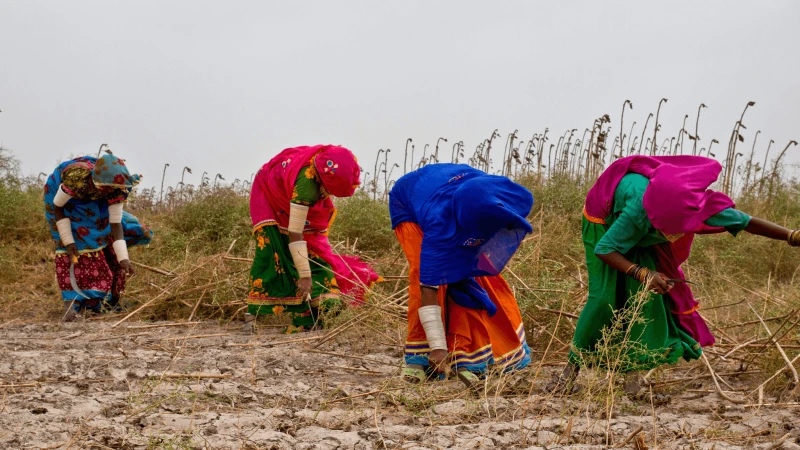Food security challenged Pakistan reevaluating benefits of currently-banned GMO crops
Food security challenged Pakistan reevaluating benefits of currently-banned GMO crops


For the last two decades, Pakistan has faced several challenges, such as drought, salinity, temperature, climate change, and an increasing population, causing food security issues to rise. The use of biotechnological approaches in agriculture to fulfill the desired need is one of the solutions. Still, the public is reluctant to use GM crops due to several reasons, including cultural aspects and traditional values.
Pakistan is bound by the Convention on Biological Diversity and the Cartagena Protocol and enacted its own biosafety rules in 2005. Also, the Ministry of Environment has developed a few guidelines proposed by the Food and Agricultural Organisation (FAO), the World Health Organisation (WHO), the United Nations Industrial Development Organisation (UNIDO), and the United Nations Environment Programme (UNEP). But still, risk assessment is not properly done by the Pakistan Environment Protection Agency (PEPA) regarding GMOs.
These areas need to be addressed as soon as possible to feed the ever-growing population of the country and face the economic disruption. With the passage of time and improving awareness, acceptance of GMOs has been enhanced because of the availability of much cheaper food.
The provision of adequate information among farmer communities and the public is important. Clear policies and guidelines must be provided by the government of Pakistan to ensure the adoption of safety protocols and regulations.
This is an excerpt. Read the original post here

 | Videos | More... |

Video: Nuclear energy will destroy us? Global warming is an existential threat? Chemicals are massacring bees? Donate to the Green Industrial Complex!
 | Bees & Pollinators | More... |

GLP podcast: Science journalism is a mess. Here’s how to fix it

Mosquito massacre: Can we safely tackle malaria with a CRISPR gene drive?

Are we facing an ‘Insect Apocalypse’ caused by ‘intensive, industrial’ farming and agricultural chemicals? The media say yes; Science says ‘no’
 | Infographics | More... |

Infographic: Global regulatory and health research agencies on whether glyphosate causes cancer
 | GMO FAQs | More... |

Why is there controversy over GMO foods but not GMO drugs?

How are GMOs labeled around the world?

How does genetic engineering differ from conventional breeding?
 | GLP Profiles | More... |

Alex Jones: Right-wing conspiracy theorist stokes fear of GMOs, pesticides to sell ‘health supplements’




 Viewpoint — Fact checking MAHA mythmakers: How wellness influencers and RFK, Jr. undermine American science and health
Viewpoint — Fact checking MAHA mythmakers: How wellness influencers and RFK, Jr. undermine American science and health Viewpoint: Video — Big Solar is gobbling up productive agricultural land and hurting farmers yet providing little energy or sustainabilty gains
Viewpoint: Video — Big Solar is gobbling up productive agricultural land and hurting farmers yet providing little energy or sustainabilty gains Fighting deforestation with CO2: Biotechnology breakthrough creates sustainable palm oil alternative for cosmetics
Fighting deforestation with CO2: Biotechnology breakthrough creates sustainable palm oil alternative for cosmetics Trust issues: What happens when therapists use ChatGPT?
Trust issues: What happens when therapists use ChatGPT? 30-year-old tomato line shows genetic resistance to devastating virus
30-year-old tomato line shows genetic resistance to devastating virus California, Washington, Oregon forge immunization alliance to safeguard vaccine access against federal undermining
California, Washington, Oregon forge immunization alliance to safeguard vaccine access against federal undermining The free-range chicken dilemma: Better for birds, but with substantial costs
The free-range chicken dilemma: Better for birds, but with substantial costs ‘You have to treat the brain first’: Rethinking chronic pain with Sanjay Gupta
‘You have to treat the brain first’: Rethinking chronic pain with Sanjay Gupta
